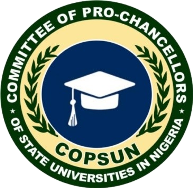Preamble
The conference marked the first of its kind to be hosted at the Benue State University to interrogate the challenge of higher education in Nigeria at large. The challenge of higher education in the country has remained a burning issue that has, over time, engaged the keen attention of critical stakeholders, including the Pro-Chancellors of State Owned Universities. Participants at the conference were essentially drawn from the academia, the media and students. The host of the conference and Pro-Chancellor of Benue State University, Makurdi, Professor Zacharys Anger Gundu, raised some fundamental posers relating to the general contradictions within the Nigeria’s university system and implored participants to engage those posers objectively and analytically.
Objectives of the Conference
The objectives of the conference were to, among other things, assemble critical stakeholders in Nigeria’s higher education sector, particularly high profile academics, to interrogate the challenge of higher education in the country and to generate some well-informed recommendations for repositioning the country’s higher education sector.
Discussions, deliberations and Observations
The technical sessions of the conference commenced with a keynote address by Professor Aondover Tarhule of Binghamton University, USA with the title: “Nigerian Universities: Going Native in the Age of Globalization.” The keynote address generated critical issues that define the Nigerian university system and raised a lot of policy concerns that set the tone for further discussions and deliberations in the technical sessions of the conference.
Quality papers were presented at five technical sessions during which participants were guided on the discourses by lead discussants. The paper presenters generated discussions on various perspectives relating to the challenge of higher education in Nigeria under relevant themes.
Observations
It was observed that the phenomenon of nativism has its roots in the first generation universities in Nigeria which were local in concept, especially when it is considered that they were established to achieve local political, social and economic benefits in the era of competitiveness among the country’s federating units. To that extent, merit was not the core consideration for the establishment of such universities. Similarly, it was observed that the nativist philosophy has gained deeper roots in Nigeria’s university system in the age of globalization. It was also observed that inadequate funding, plagiarism, sexual harassment, cultism and associated vices, incessant union strikes, research constraints and dwindling quality of academic output have, among other things, combined to compound the challenge of higher education in Nigeria.
Resolutions
Arising from the above discussions, deliberations and observations, the following resolutions were made:
- All issues relating to nativism in public and state universities can be better addressed through quality legislation.
- In order to sustain the funding of public universities, TETFund should support only public universities.
- Pro-Chancellors are to synergize with ASUU to move the university system forward by maximizing all sources of funding identified.
- Standards and quality of academic output should be heightened to attract foreign students and academic staff.
- There is the need to generate a database to check cases of plagiarism in Nigeria’s higher education system.
- Universities should look inwards for internally generated revenue (IGR) to complement other sources of income.
- It is impossible to fund every public university as a research university, States must attempt to distinguish their universities either as comprehensive universities or research universities that would be well funded.
- Partnership between academic unions and management is necessary to develop rigorous and transparent hiring criteria and processes.
- There is need for the restructuring of the educational system to make it more functional and responsive to societal needs.
- Regulatory agencies such as NUC and JAMB though unitary should continue with their oversight functions in view of the present realities pending when they would be unbundled in line with true federalism.
- State Governments should allocate at least 5% of state revenues and 5% of LGAs revenues to their respective universities.
- NUC should slow down on registration of new universities until the thorny issue of academic staff shortage is addressed and overcome.
- The FGN should convert the three flagship universities (ABU, UNN, and UI) to full-fledged research universities and upgrade their facilities and manpower.
- Publications in our universities must rise above the present focus on promotions and should be tailored to meet immediate societal needs and international standards.
- NUC’s accreditation mode and mechanism need a critical review in terms of quality assurance and curriculum issues. In this regard, a synergy between respective professional bodies and the NUC in the regulatory framework for quality assurance and accreditation is required.
- Each public university should develop a Student Bill of Rights.
- There is the need to create awareness and develop a code of conduct for staff and students on sexual harassment; and to provide clear punitive measures against those involved in sexual harassment.
- Each public university should work towards developing a gender policy.
Conclusion
The conference was a significant milestone in the quest for transforming Nigeria’s higher education sector and particularly the country’s university system. It was agreed that COPSUN should publish the proceedings of the conference to enhance the committee’s voice in the on going conversation on Nigerian higher education. Participants were also of the opinion that most of the discussions and recommendations relating to the challenge of higher education in Nigeria can be addressed through quality legislation and deliberate steps by administrators, academics, students and university based unions.
5th March 2020.

